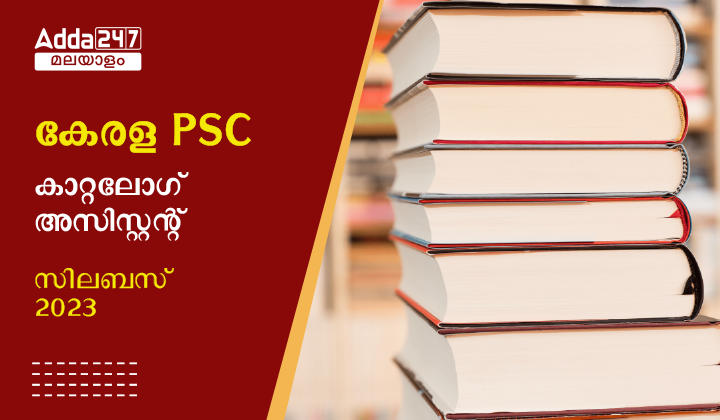Table of Contents
കേരള PSC കാറ്റലോഗ് അസിസ്റ്റന്റ് സിലബസ് 2023
കേരള PSC കാറ്റലോഗ് അസിസ്റ്റന്റ് സിലബസ് 2023: കേരള പബ്ലിക് സർവീസ് കമ്മീഷൻ ഔദ്യോഗിക വെബ്സൈറ്റിൽ കേരള PSC കാറ്റലോഗ് അസിസ്റ്റന്റ് സിലബസ് 2023 പ്രസിദ്ധീകരിച്ചു. പരീക്ഷയ്ക്കുള്ള തയ്യാറെടുപ്പുകൾ ആരംഭിക്കാൻ സമയമായി. പരീക്ഷയിൽ വിജയിക്കുന്നതിന്, സിലബസിനെക്കുറിച്ച് വ്യക്തമായ ധാരണ ഉണ്ടായിരിക്കണം, അതിനാൽ കേരള PSC കാറ്റലോഗ് അസിസ്റ്റന്റ് സിലബസ് വിശദമായി വായിച്ച് മനസിലാക്കുക. ചുവടെ നൽകിയിരിക്കുന്നു ലിങ്ക് ഉപയോഗിച്ച് നിങ്ങൾക്ക് കേരള PSC കാറ്റലോഗ് അസിസ്റ്റന്റ് സിലബസ് PDF രൂപത്തിൽ ഡൗൺലോഡ് ചെയ്യാവുന്നതാണ്.
കേരള PSC കാറ്റലോഗ് അസിസ്റ്റന്റ് സിലബസ് 2023: അവലോകനം
ചുവടെ നൽകിയിരിക്കുന്ന പട്ടികയിൽ കേരള PSC കാറ്റലോഗ് അസിസ്റ്റന്റ് സിലബസ് 2023 സംബന്ധമായ എല്ലാ പ്രധാനപ്പെട്ട വിവരങ്ങളും ലഭിക്കും.
| കേരള PSC കാറ്റലോഗ് അസിസ്റ്റന്റ് സിലബസ് 2023 | |
| ഓർഗനൈസേഷൻ | കേരള പബ്ലിക് സർവീസ് കമ്മീഷൻ |
| കാറ്റഗറി | പരീക്ഷ സിലബസ് |
| വകുപ്പ് | കേരള ലെജിസ്ലേച്ചർ സെക്രട്ടേറിയറ്റ് |
| തസ്തികയുടെ പേര് | കാറ്റലോഗ് അസിസ്റ്റന്റ് |
| കാറ്റഗറി നമ്പർ | 311/2022 |
| പരീക്ഷാ മോഡ് | ഓൺലൈൻ/ OMR |
| ചോദ്യങ്ങളുടെ മാധ്യമം | ഇംഗ്ലീഷ് |
| മാർക്ക് | 100 |
| പരീക്ഷയുടെ സമയപരിധി | 1 മണിക്കൂർ 30 മിനിറ്റ് |
| ഔദ്യോഗിക വെബ്സൈറ്റ് | www.keralapsc.gov.in |
Fill out the Form and Get all The Latest Job Alerts – Click here
കേരള PSC കാറ്റലോഗ് അസിസ്റ്റന്റ് പരീക്ഷ പാറ്റേൺ 2023
കാറ്റലോഗ് അസിസ്റ്റന്റ് പരീക്ഷ പാറ്റേൺ ചുവടെ ചേർക്കുന്നു.
| കേരള PSC കാറ്റലോഗ് അസിസ്റ്റന്റ് പരീക്ഷ പാറ്റേൺ 2023 | ||
| മൊഡ്യൂൾ | വിഷയം | മാർക്ക് |
| മൊഡ്യൂൾ 1 | FOUNDATIONS OF LIBRARY AND INFORMATION SCIENCE | 10 മാർക്ക് |
| മൊഡ്യൂൾ 2 | PRINCIPLES OF MANAGEMENT | 10 മാർക്ക് |
| മൊഡ്യൂൾ 3 | LIBRARY CLASSIFICATION (THEORY) | 10 മാർക്ക് |
| മൊഡ്യൂൾ 4 | INFORMATION AND COMMUNICATION | 10 മാർക്ക് |
| മൊഡ്യൂൾ 5 | INFORMATION SOURCES | 10 മാർക്ക് |
| മൊഡ്യൂൾ 6 | INFORMATION PRODUCTS AND SERVICES | 10 മാർക്ക് |
| മൊഡ്യൂൾ 7 | LIBRARY AND INFORMATION CENTRE MANAGEMENT | 10 മാർക്ക് |
| മൊഡ്യൂൾ 8 | CATALOGUING AND METADATA (THEORY) | 10 മാർക്ക് |
| മൊഡ്യൂൾ 9 | INFORMATION TECHNOLOGY APPLICATION IN LIS | 10 മാർക്ക് |
| മൊഡ്യൂൾ 10 | TECHNICAL COMMUNICATION | 10 മാർക്ക് |
| ടോട്ടൽ | 100 മാർക്ക് | |
കേരള PSC കാറ്റലോഗ് അസിസ്റ്റന്റ് സിലബസ് PDF ഡൗൺലോഡ്
കേരള PSC കാറ്റലോഗ് അസിസ്റ്റന്റ് സിലബസ് PDF ഡൗൺലോഡ് ചെയ്യാൻ, താഴെ നൽകിയിരിക്കുന്ന ലിങ്കിൽ ക്ലിക്ക് ചെയ്യുക.
കേരള PSC കാറ്റലോഗ് അസിസ്റ്റന്റ് സിലബസ് PDF ഡൗൺലോഡ്
കേരള PSC കാറ്റലോഗ് അസിസ്റ്റന്റ് സിലബസ്
കാറ്റലോഗ് അസിസ്റ്റന്റ് തസ്തികയുടെ വിശദമായ സിലബസ് ചുവടെ ചേർക്കുന്നു.
മൊഡ്യൂൾ 1: FOUNDATIONS OF LIBRARY AND INFORMATION SCIENCE (10 Marks)
• Library as a Social Institution:
Social and historical foundations of library; Different types of libraries: their distinguishing features and functions; Role of library in formal and informal education. Changing concept of librarianship• Normative Principles of LIS:
Five Laws of Library Science; Implications of the Five Laws in library and information activities• Library Development:
Development of libraries with special reference to India; Library movement of Kerala; Resource sharing and Library Networking• Laws relating to Libraries and Information:
Library legislation: need and essential features, Library legislation in India, Kerala Public Libraries Act; Press and Registration Act and Delivery of Books (Public Libraries) Act and Copyright Act.• Library and Information Profession:
Attributes of profession; Librarianship as a profession; Professional ethics; Professional associations and their role: ILA, IASLIC, IATLIS, CILIP, SLA, ALA, and ASLIB; Professional education and research• Promoters of LIS:
UNESCO, FID, IFLA, UGC, RRRLF.
മൊഡ്യൂൾ 2: PRINCIPLES OF MANAGEMENT (10 Marks)
• Basics of Management:
Basics of Management and Library Management; School of Management Thoughts; Functions of Management – POSDCORB; Principles of scientific management and their application in libraries; Scientific Management- Henry Fayol’s Principles of management• Systems Analysis and Design:
Systems Theory; Open and Closed Systems; Project management Techniques – PERT/ CPM, decision tables; data flow diagram• Human Resources Management:
Organizational structure; job analysis and description; recruitment, selection and induction; training; performance appraisal; motivation; group dynamics; stress management• Financial Resources Management:
Methods of financial estimation; Budgets and Budgeting techniques; Marketing management: Marketing of information services and products• Quality Management:
TQM, Quality audit; SERVQUAL, ISO 9000 series of Standards
മൊഡ്യൂൾ 3 LIBRARY CLASSIFICATION (THEORY) (10 Marks)
• Universe of Subjects:
Structure and attributes, modes of formation of subjects• Library Classification:
Library classification and its functions; Enumerative and faceted schemes• Mapping of the Universe of Subjects:
Mapping of the Universe of Subjects in the major schemes of Library classification (DDC,CC, UDC and LC)• General Theory of Classification:
Normative Principles for Idea Plane and Verbal Plane; Principles for Helpful Sequence; Facet Analysis as used in the CC; Principles for Facet Sequence; Postulation procedure; Devices to form and sharpen isolate numbers.• Notation System and its functions:
Qualities of a good notation system; Hospitality and Mnemonics; Zone analysis• Trends in Library Classification:
Automatic Classification; Classification in online systems and Web; Knowledge Organization for Digital Libraries; Ontologies; Steps in designing a scheme of classificatio for a micro-subject.
മൊഡ്യൂൾ 4 INFORMATION AND COMMUNICATION(10 Marks)
• Information:
Characteristics, nature, value and uses; Conceptual difference between data, information and knowledge• Communication:
Channels – formal and informal;models; barriers, trends in scientific communication• Information Science:
Genesis and development; definitions and scope; Information Science as a discipline and its relationship with other subjects• Library, Information and Society
Information Society: genesis and characteristics; National policy of information; Open access movement.• Economics of information:
Information industry: generators, providers and intermediaries; Information audit.• Management of Information:
Information management; Knowledge management
മൊഡ്യൂൾ 5 INFORMATION SOURCES (10 marks)
• Physical media of information:
Evolution of physical media; Classification of information sources – Print and non-print; Documentary and Non-Documentary; Primary, Secondary and Tertiary Sources of Information — their categories and characteristics• Ready Reference Sources:
Evaluation Criteria; Detailed Study of dictionaries, encyclopaedias, yearbooks, directories, biographical sources, geographical sources, statistical sources, sources of current information.• Electronic Information Sources:
Definition, characteristics and types; Information in the Internet – E-books, E-journals, information gateways, table of contents, preprints, discussion forums, technical reports, OPACs, Campus Wide Information Service, ETDs, Patents, reference sources, search tools, subject directories, Courseware, software.• Prominent sources in different subjects:
Abstracting and Indexing periodicals, databases, ready reference sources – dictionaries, encyclopaedias, yearbooks, directories, biographical sources, geographical sources, handbooks and manuals and statistical sources.• Multimedia & E- resources:
Databases, Portals, Subject Gateways; Open Access Resources.•Search Engines, Search Techniques:
Lab. Work on information search & access, Trial Demos
മൊഡ്യൂൾ 6 INFORMATION PRODUCTS AND SERVICES (10 Marks)
• Information Users and their Information Needs:
Categories of information users; Information needs, definition; Types and models; Information seeking behaviour User studies, methods, technique and evaluation• Introduction to Information Literacy:
Information: Characteristics of information; Types of information; Need for Information Literacy; Dimensions of information literacy.• Reference Service:
Concept, definition and trends, virtual reference service, examples of electronic reference service; Reference Interview and search techniques.• Information Services and Products:
Information services, concept, definition need and trends, Alerting services – CAS, SDI, technique, evaluation. Bibliographic, Referral, Document Delivery, Referral centres• Information Systems and their Services:
Study of national, International Systems and Services, NISCAIR, DESIDOC, NASSDOC, SENDOC, UNISIST, AGRIS, MEDLARS, OCLC
മൊഡ്യൂൾ 7 LIBRARY AND INFORMATION CENTRE MANAGEMENT (10 Marks)
• Library Planning:
Concept, definition, need and purpose; Policies, Objectives and Procedures; Library Organizational Structure• Library House Keeping Operations: Technical Operations:
Different sections of library and information centres and their functions; Collection development: Acquisition procedures: selection, ordering, accessioning and stock editing. Technical processing: Classification, Cataloguing and physical processing.• Library House Keeping Operations: Reader’s services:
Maintenance of documents: work with new, returned, damaged and lost documents. Stock verification, binding, care, preservation and restoration of print and electronic documents; Circulation control: Charging systems, interlibrary lending. Serials control: Selection, ordering, receipt and display. Special collections• Library Finance:
Sources of Finance; Library Budget, Budgeting and Accounting• Library Building:
Building: Layout and space estimation; Furniture and equipment• Library Records and Statistics:
Library rules; Staff Manual; Library Statistics; Types of Report: Annual report, Progress / Review reports.
മൊഡ്യൂൾ 8 CATALOGUING AND METADATA (THEORY) (10 Marks)
• Bibliographic Items:
Bibliographic record and its structure and functions; Different kinds of bibliographic files; FRBR; Library catalogue and its functions; Classified and Dictionary Catalogues; OPACs• Bibliographic Description:
Principles of Description; Standards for Description: ISBDs, AACR-2, RDA.
Bibliographic Record Formats – ISO 2709 and the MARC family of Formats, MARC XML.• Subject Indexing:
Problems in subject search and retrieval; vocabulary control; Thesauri• General Theory of Subject Indexing Languages:
(SIL) of G. Bhattacharyya• Indexing Systems:
Lists of Subject Headings, Chain Indexing, PRECIS, POPSI; Automatic Indexing; Natural language indexing• Metadata:
Types of metadata and their functions; metadata standards: Dublin Core, EAD
മൊഡ്യൂൾ 9 INFORMATION TECHNOLOGY APPLICATION IN LIS (THEORY) (10 Marks)
• Library Automation
Planning and Implementation, Automation of in-house operations- file requirements for Acquisition, Cataloguing, Circulation Control, Serials Control, OPAC and Library Automation Packages: KOHA, E-Granthalaya.• Communication Technology:
Fundamentals of Telecommunication Technology, Media, Mode and Components, Network Media, UTP, Optical Fibre, Ethernet, Network Interface Card, Hubs, Routers, Modem, Network Types and Topologies: LAN, MAN, WAN, Wireless, Bus Star, Ring and Token Ring: Local Area Network Types and Topologies.• Internet:
Basic Features ad Tools; Net Based Information Services, Connectivity: Dial Up, Lease Line, ISDN, Digital Subscriber Lines Protocols: FTP, HTTP Web Browser: Internet Explorer, Mozilla Firefox, Chrome; Web Servers, Web Tools, Search Engines Video Conferencing; Web 2.0 Tools and Services; Internet Security, Cloud Computing.
മൊഡ്യൂൾ 10 TECHNICAL COMMUNICATION (10 Marks)
• Communication Process:
Types, Verbal, Non-verbal, Formal, Informal; Types of writing; Technical writing -Principles, characteristics; Language as a medium for communication, readability; Audience Research• Organization Lay out and Presentation of Information:
Learned papers and popular articles, Technical Reports and project proposals, Book design and page layout• Repackaging and Consolidation:
Preparation of trend reports, reviews, State-of- the art report, digest. Abstracts – Types, Preparation, Guidelines• Mechanics of Writing:
Common problems in spelling, grammar, usage and punctuation• Style Manuals:
Use of Style manuals – Chicago, APA and MLA; Reference Management Software; Copy editing and proof reading.
| അനുബന്ധ ലേഖനങ്ങൾ |
| കേരള PSC കാറ്റലോഗ് അസിസ്റ്റന്റ് പരീക്ഷ തീയതി 2023 |




